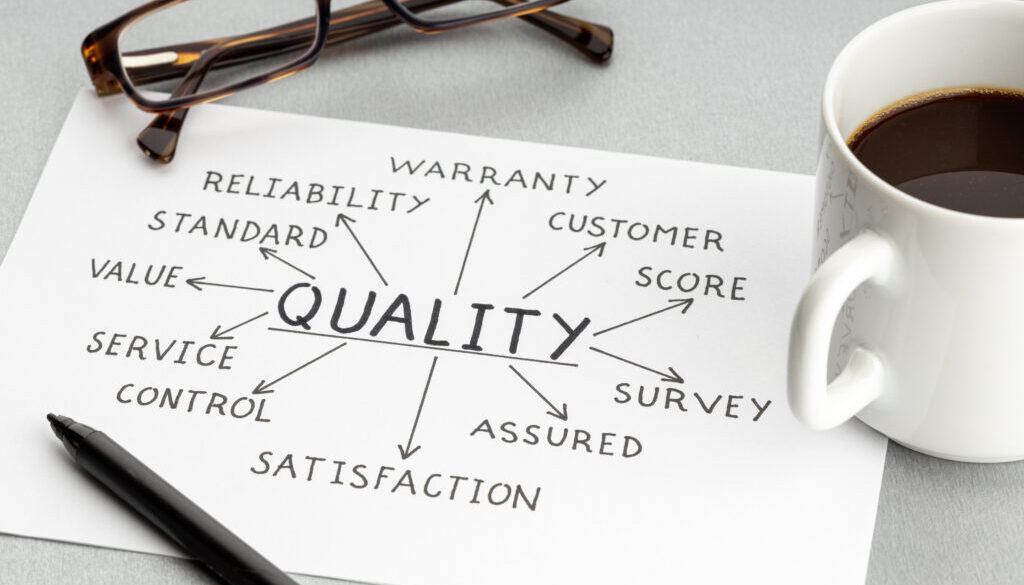Introduction
Quality management isn’t just a buzzword; it’s a crucial aspect of every successful organization. Whether you’re in manufacturing, service, or any other industry, the principles of quality management serve as the bedrock for achieving excellence, customer satisfaction, and long-term success. In this comprehensive guide, we’ll delve deep into the pillars of quality management, exploring how they contribute to building a strong foundation for your business.
Quality management involves a systematic approach to ensuring that products, services, and processes consistently meet or exceed customer expectations. It encompasses various strategies, methodologies, and tools aimed at enhancing performance, reducing defects, and driving continuous improvement.
1. Customer Focus
At the heart of quality management lies an unwavering commitment to customer satisfaction. Understanding your customers’ needs, expectations, and preferences is essential for delivering products and services that resonate with them. By adopting a customer-centric approach, you can tailor your offerings to meet and even exceed their requirements.
2. Leadership and Commitment
Strong leadership is instrumental in setting the tone for a culture of quality within an organization. Leaders must not only endorse quality initiatives but also actively participate in and support them. When leadership demonstrates a genuine commitment to quality, it encourages employees at all levels to embrace quality management principles.
3. Employee Involvement and Empowerment
Your employees are your greatest asset. Quality management involves empowering and involving them in the process of identifying opportunities for improvement and implementing solutions. By fostering a culture of open communication and collaboration, you tap into the collective wisdom of your workforce, driving innovation and efficiency.
4. Process Approach
Every business consists of interconnected processes that collectively contribute to its success. Adopting a process-oriented approach to quality management allows you to identify bottlenecks, streamline workflows, and optimize efficiency. Mapping out processes, understanding inputs and outputs, and managing variations are all key components of this approach.
5. Continuous Improvement
The pursuit of excellence is an ongoing journey. The concept of continuous improvement, often associated with methodologies like Kaizen, Six Sigma, and Lean, emphasizes the need to constantly evaluate and enhance processes. By consistently seeking out areas for enhancement, organizations can achieve incremental yet significant gains over time.
6. Data-Driven Decision Making
In the age of information, data plays a pivotal role in quality management. Making informed decisions based on accurate data insights ensures that changes are effective and impactful. Implementing robust data collection, analysis, and reporting mechanisms equips your organization with the tools needed to make strategic decisions.
7. Supplier Relationships
Quality doesn’t stop at your organization’s doorstep. Suppliers and partners contribute to the overall quality of your products and services. Establishing strong supplier relationships, conducting thorough quality assessments, and collaborating closely with suppliers can enhance the consistency and reliability of your offerings.
8. Systematic Approach to Management
Quality management is not a haphazard endeavor. It requires a systematic and structured approach that encompasses planning, implementation, monitoring, and improvement. Frameworks such as ISO 9001 provide a structured roadmap for embedding quality management practices into your organization’s DNA.
9. Factual Approach to Decision Making
Decisions rooted in facts and data are more likely to yield positive outcomes. Quality management promotes the use of reliable information and analysis for decision-making processes. This approach minimizes the impact of assumptions and biases, leading to more accurate and effective choices.
10. Engagement of People
Engaged employees are more likely to be invested in the success of the organization. Quality management encourages creating an environment where employees feel valued, recognized, and motivated. This not only improves morale but also contributes to higher productivity and innovation.
Conclusion
Incorporating these pillars of quality management into your organization’s framework lays the groundwork for sustainable success. By embracing customer focus, strong leadership, continuous improvement, data-driven decision-making, and other core principles, you’ll foster a culture that values quality at every level. Remember, building a strong foundation takes time and dedication, but the results are well worth the effort. As you integrate these principles, you’ll find that quality management becomes not just a practice, but a way of business that propels you toward excellence.










